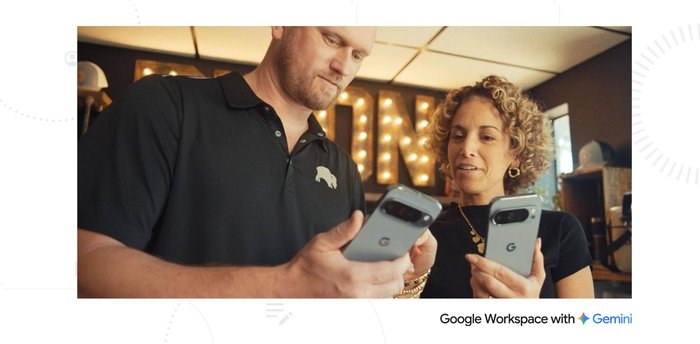Atlantic Housing Foundation: Supporting families in need with help from Google Workspace

Damon Hartman
Head of Information Technology, Atlantic Housing Foundation
Google Workspace Newsletter
Keep up with the evolving future of work and collaboration with insights, trends, and product news.
SIGN UPDespite our name, Atlantic Housing Foundation’s mission goes beyond developing and preserving affordable housing. We want to foster transformation in the communities we serve and help residents improve their lives. But in order to do this, our team has to be able to communicate quickly and effectively. With our team spread across six states and dozens of cities, we need fast and flexible communication and collaboration tools, and this became even more important when we moved to a completely remote workplace.
For years, our productivity and collaboration suite was connected to on-site servers that were running out of storage space. If someone’s email went down, it was usually due to a local database issue, and I could spend a full day or night trying to get it back online. And since our documents weren’t in the cloud, people were overwriting each other's work, edits were being lost, and we spent needless time searching for missing information.
To fix these document and data management issues, we transitioned to Google Workspace. Google Drive and Google Docs made it easy for us to share and edit files, and Gmail provided more reliable uptime for our email service. Thankfully, we made this move to Google Workspace years ago, which meant that we didn’t have to shut down operations when the pandemic hit. We all went home, and the next day, we were up and running without any downtime.
Simplifying cross-team work with user-friendly tools
Our biggest IT challenge in the transition to fully remote work was having to set up more than 50 physical phones that our old VoIP provider required. Bringing physical phones into our employees’ houses wasn’t easy. It wasn’t as straightforward as simply plugging their phone into the internet. Not every employee’s router was near their office (if they even had a home office), and some houses weren’t cabled at all. On top of that, for each user, I had to provision a phone, submit a ticket to our VoIP provider, and work with them to reset an account. This took hours of cross-departmental work.
Since we were already working with Google Workspace, I decided to look into Google Voice as an alternative. We switched to Google Voice and got rid of those physical phones, making it easier to manage our remote team and continue to support our communities as efficiently as possible. Now, I can assign a number to a user, they log in, and it’s done. A process that took us a couple of hours now takes five minutes. Plus, everything in our Google ecosystem is connected, so the team’s address books are automatically connected to their Voice calls, and they don’t have to manage them manually anymore.
At the beginning of 2023, we returned to our offices and were able to bring our Google Voice lines back with us without any extra work. We also started using the conference rooms again. Since we were using Google Meet as our video meeting solution, we installed Google Meet hardware in our offices. We used to have to dial in on a separate conference phone and cast the meeting to a screen. Now, we can pull up a call on any Google Meet room device, which is simpler for everybody.
Giving time back to employees to improve community support
With Google Workspace, we’ve been able to streamline communication across the organization, which means we have more time to serve our communities. Being able to make real-time edits to documents while we’re on team calls makes us so much more efficient, and from a cost and operations perspective, that efficiency is everything. Instead of using meeting times to find and edit documents, or spending extra time setting up phones, we can use that time to design and deliver on new strategies to help our residents.
We’ve also been able to continue to foster a more inclusive work environment with Meet’s live translation feature. More than 15% of our team speaks English as a second language. Live translation helps us overcome language barriers and keeps us more aligned. We’re exploring ways that we can use this feature to better communicate with our Spanish-speaking residents as well.
This is why I tell new people who join Atlantic Housing that we’re a “Google company.” Our whole environment runs on Google Workspace. Sharing information is easy, calls are simpler, and scalability is never a question. If we had to do this transition again, the decision would be a no-brainer. Google has made a huge difference for us.



